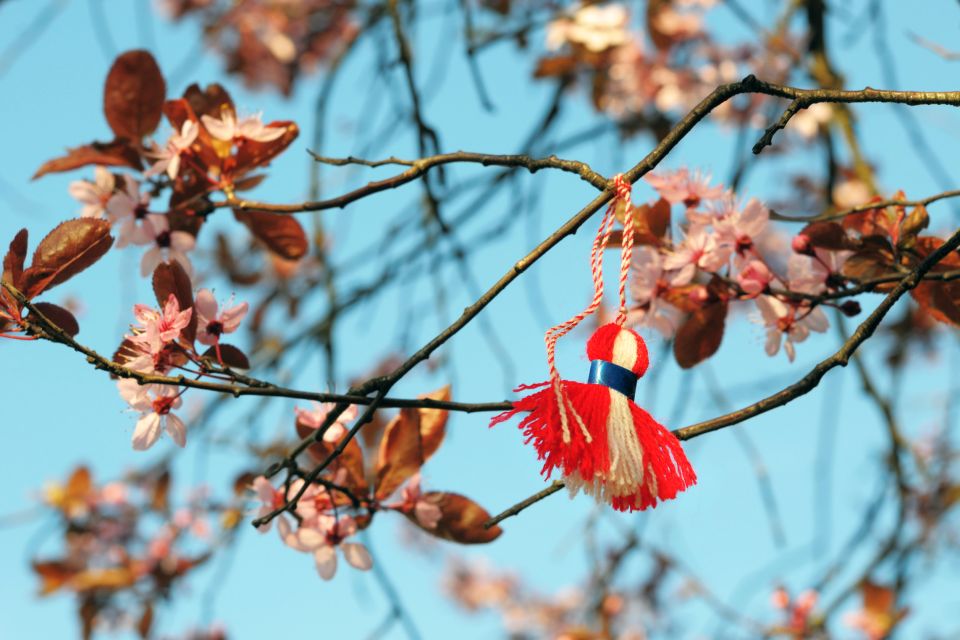
Baba Marta Bulgaria
Baba Marta (Grandma March) is a charming old lady that chases away the cold February. Baba Marta stands for life and invites the sun, flowers, and birds back for the Spring, a season of life. Whenever the weather turns cold and windy in Spring, it's believed that Baba Marta is unhappy and the Martenitsas are said to relax Baba Marta's temper.

Baba Marta One of the greatest bulgarian traditions ) Bab… Flickr
Baba Marta (Bulgarian: Баба Марта, "Granny March") is the name of a Bulgarian mythical figure who brings with her the end of the cold winter and the beginning of the spring. Her holiday of the same name is celebrated in Bulgaria on March 1 with the exchange and wearing of martenitsi.Baba Marta folklore is also present in southeastern Serbia, namely in the municipalities of Bosilegrad.

Baba Marta character illustration on Behance
Bu bayram Bulgarcada "Çestita Baba Marta!" (Tebrikler Baba Marta) şeklinde kutlanır. Baba Marta - Marta Nine, günümüze kadar korunmuş en saygın geleneklerden biridir.

Happy Baba Marta day! The Art Of Svetla Radivoeva
Ms. Marta Cecilia Jaramillo, PA,PA C, is a Physician Assistant specialist in Philadelphia, Pennsylvania. She attended and graduated from Umdnj-New Jersey Medical School in 1993, having over 30 years of diverse experience, especially in Physician Assistant. She is affiliated with many hospitals including Jeanes Hospital, Temple University Hospital.
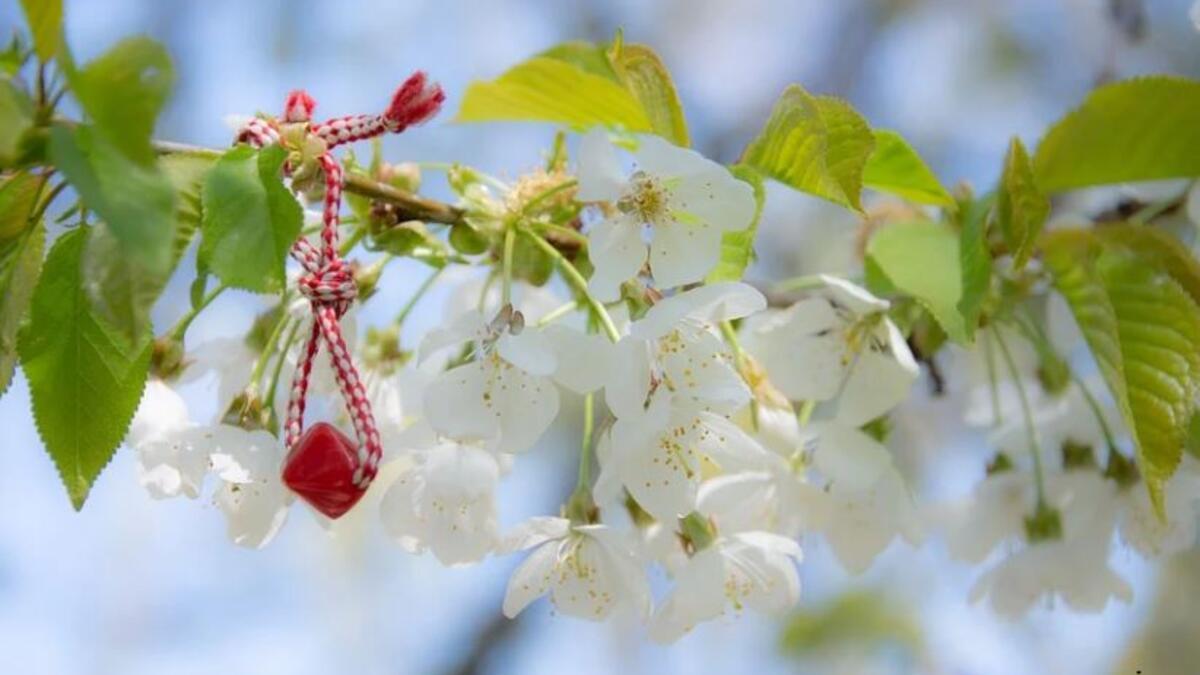
“Çestita Baba Marta ne demek? Bir Mart günü Baba Martanın tarihçesi Son Dakika Haberleri
Peki, Çestita Baba Marta ve marteniçka nedir, nasıl yapılır? Mart ayının başlangıcı ile birlikte Bulgaristan'da geleneksel olarak marteniçka yapılır. Baharın gelişini Çeştita Baba Marta etkinlikleri ile kutlayan kişiler bu etkinliklerde marteniçka hazırlarlar. Martenitsa, 1 Mart'tan başlayarak martın sonuna kadar.

Premium Vector Baba marta festival signboard, bulgarian holiday
On the 1st of March Bulgarian people celebrate a traditional holiday called Baba Marta (or Grandma Marta in English) and it is related to welcoming the approaching spring. On that day, Bulgarians exchange, so called "Martenitsi" ("Martenitsa" - singular, "Martenitsi" - plural) and tell each other, "Chestita Baba Marta!" (Happy Grandma Marta!).

Baba Marta, 2020 PlantLore
Cada año el 1 de marzo Bulgaria celebra una gran fiesta nacional: ¡BABA MARTA! Cuenta la leyenda que desde hace más de mil años, de la Abuela Marta dependía el clima. Cuando estaba de buen humor lucía el sol, cantaban los pájaros y florecían los campos. En cambio, cuando estaba de malas volvía el frío.

Baba Marta The Art Of Svetla Radivoeva
Grandma Marta Day (or simply Baba Marta, Bulgarian: Баба Марта, "Grandma Marta") is a holiday celebrated in Bulgaria, on March 1. Martenitsas, usually in the form of a wrist band, small yarn dolls, or tassels, are created by combining red and white colored threads and are worn on that day and throughout March.They are worn until a stork or a swallow is seen, symbolizing the coming of.
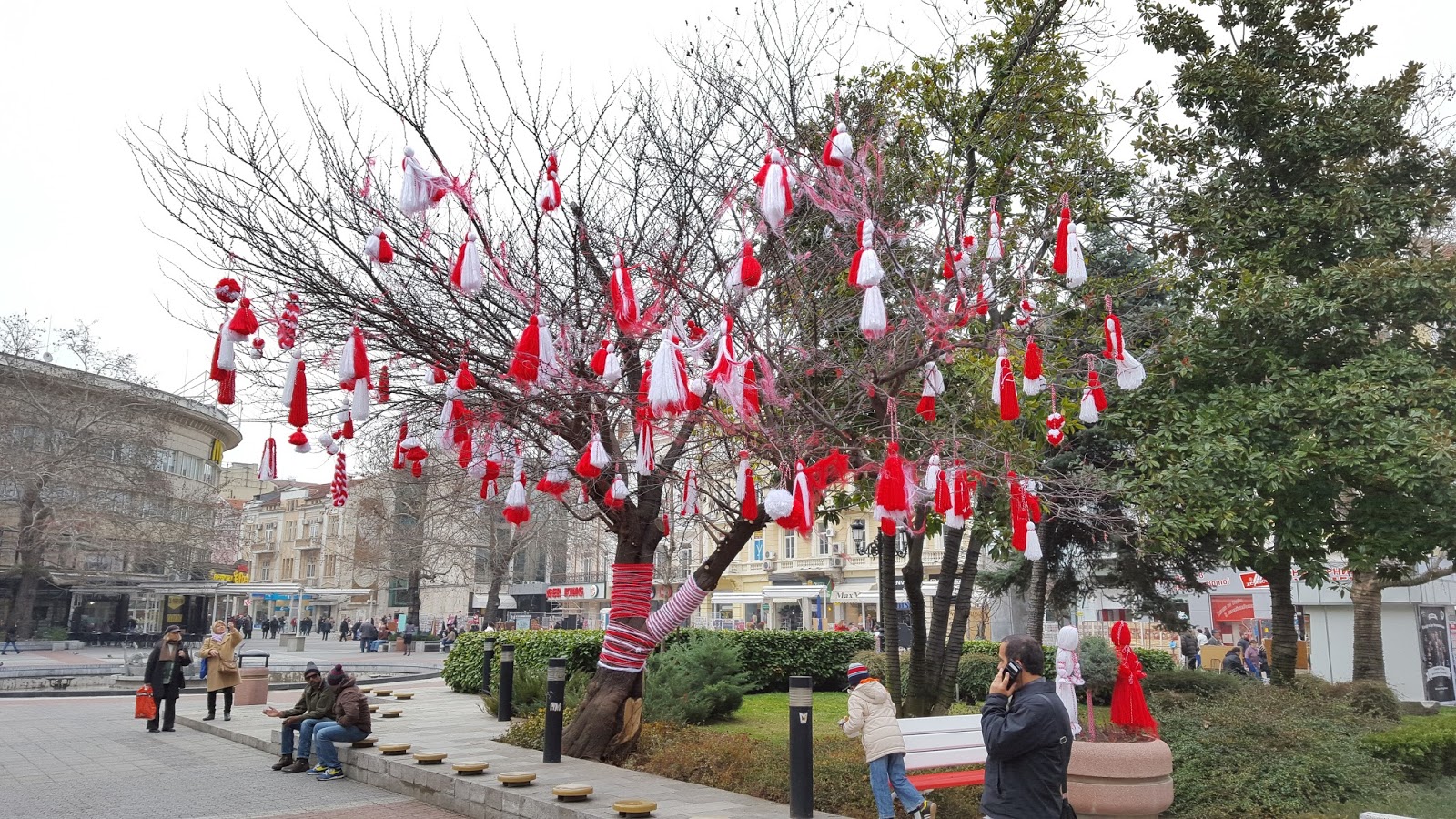
Our Bulgarian Adventure Baba Marta
Traditional Bulgarian folklore will have it grumpy old Baba Marta, best known for her temperamental mood changes, is responsible for the moody weather associated with the month of March. Martenitsi come in all shapes and sizes: bracelets, amulets and even small puppets. These little puppets represent a boy and a girl named Pizho and Penda.

Baba Marta Images Free Vectors, Stock Photos & PSD Page 5
Bulgarians celebrate the unique holiday Baba Marta (Granny March) on the first day of March, when almost all Bulgarians wear a bit of red and white yarn called a martenitsa pinned to a coat or tied around the wrist as a sign of participation in the great waiting game for the arrival of spring. They greet each other with the familiar call, "Chestita Baba Marta!" which means Happy Granny.

Baba Marta DRAG Bicycles
Gördükten sonra da bir ağaca bağlanır. Bu bayram Bulgarcada "Çestita Baba Marta!" şeklinde kutlanır. Baba Marta - Marta Nine, günümüze kadar korunmuş en saygın geleneklerden biridir. Bu takılar, meyve ağaçlarına, evlere, ev hayvanlarına da takılırlar. Bu şekilde yeni başlayan tarım yılının da bereketli ve verimli.
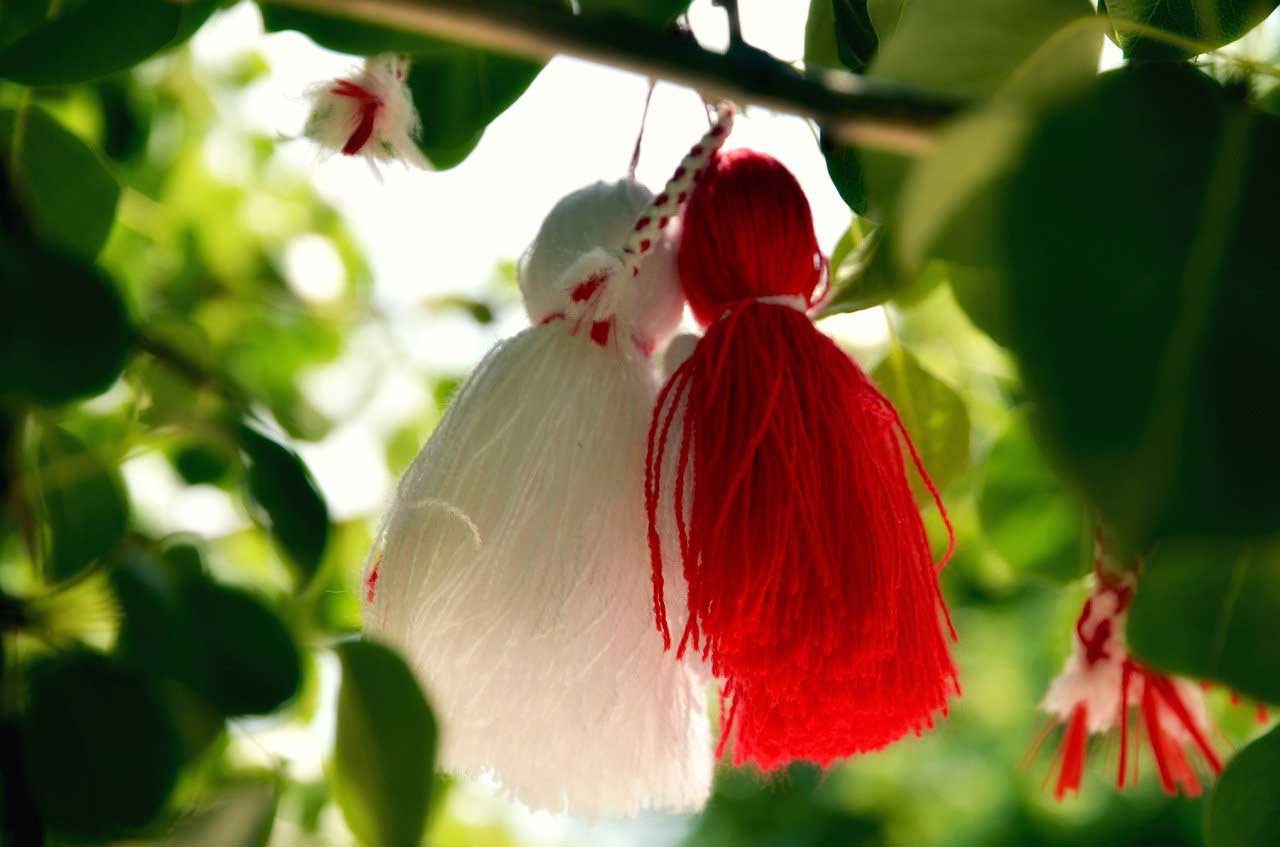
Baba Marta — Bulgarian Tradition of Colours
On the days leading up to the 1 st March, the streets of Bulgaria are filled with people buying, selling and giving martenitsi: red and white dolls, tassels and friendship bracelets. The day harks back to pagan times to symbolise the coming of spring and the end of winter. Baba Marta, or Grandmother March, is a renowned to have severe mood swings which relate with the changeable weather in March.

Baba Marta, 2022 PlantLore
Baba Marta (Баба Марта) means "Grandmother March", and she is said to bring with her the end of the cold winter and the beginning of the spring. This day is celebrated by the tradition of giving your friends red-and-white interwoven strings, called Martenitsi. These Martenitsi are thought to bring health and happiness during the.
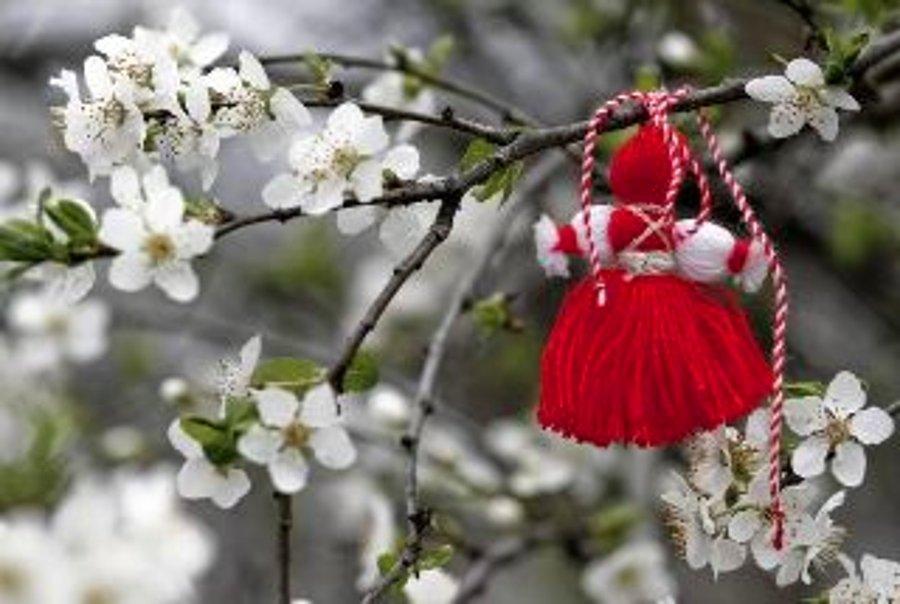
Çestita Baba Marta ! Честита Баба Марта!
Literally "Grandmother March," Baba Marta is the personification of the month that signifies the beginning of springtime. We celebrate her arrival on March 1 with the greeting, "Chestita Baba Marta," which essentially means "Happy March!". We keep honoring her until the end of the month. Her story originated from the Balkan pagan.
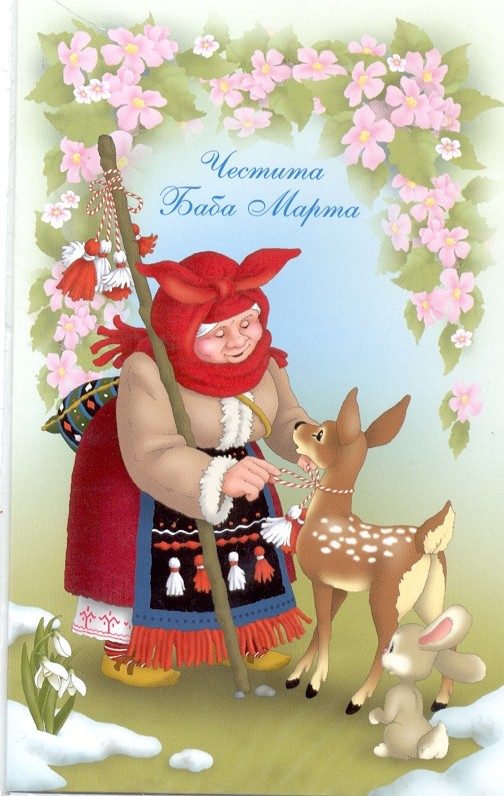
Baharatın Kızı " ÇESTİTA BABA MARTA
Весело хумористично стихче.Martenitsa is a small piece of adornment, made of white and red yarn and worn from March 1st until the 22nd March (or the first.

Baba Marta Illustration Graphic by Miss Chatz · Creative Fabrica
We say Chestita Baba Marta - Happy Grandma March, because we describe march as a feminine month represented by an entity called baba Marta - grandma March. On the first of March you tie a bracelet on all your close people you see that day, and vice versa. By the end of the day you're covered in bracelets and you usually keep 2 or 3 and wear.